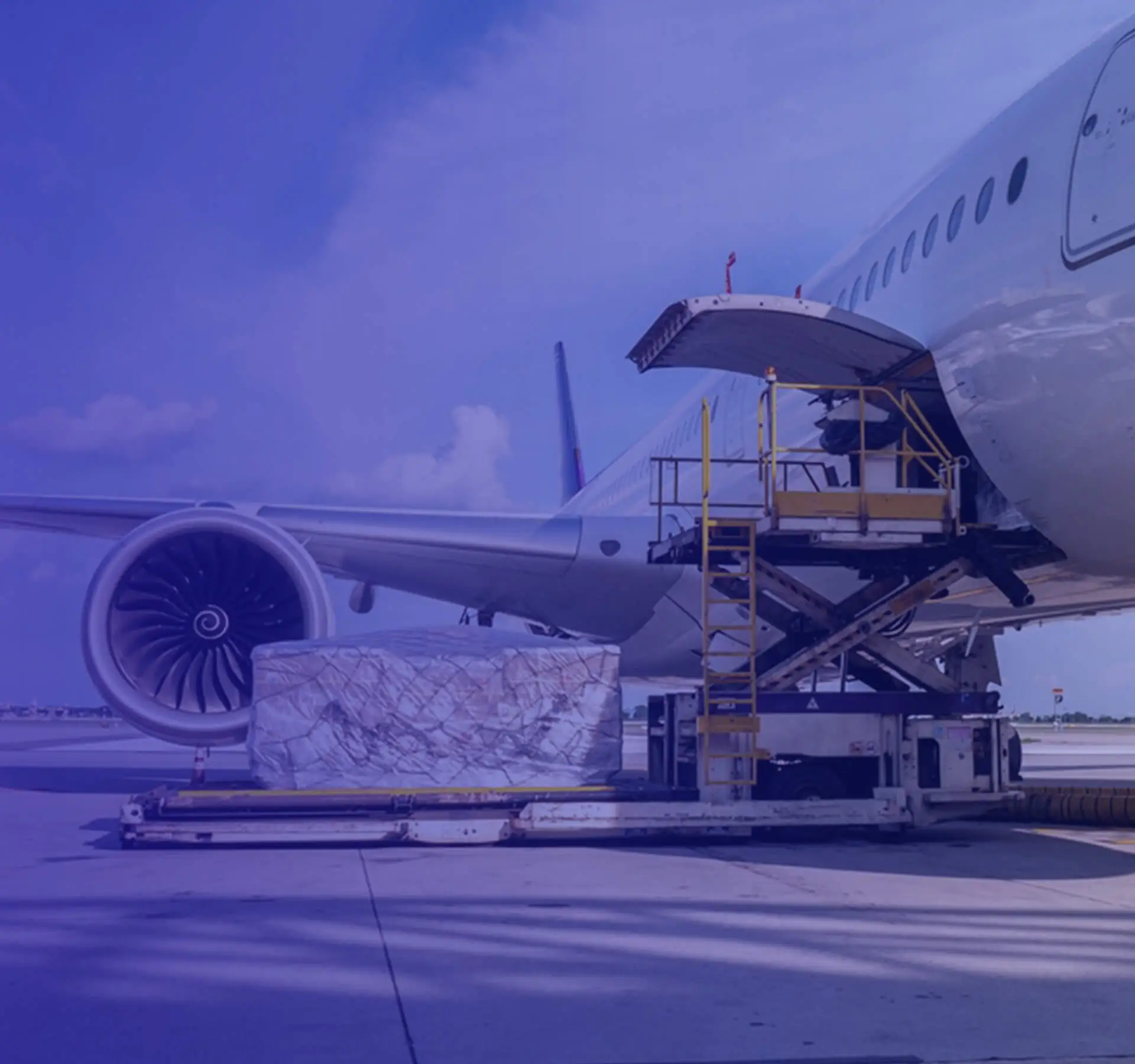Challenges and Solutions of Air Freight
Topics Covered
Challenges and Solutions of Air Freight
Although air shipping offers faster speed and better security, it also comes with some challenges.
The main challenges include high costs, capacity limitations, and other factors. Understanding these challenges can help you plan better and ensure your shipments are delivered on time.
In this article, we cover major air freight challenges, effective solutions, and how experienced logistics support can make the process easier.
What is Air Freight?

Air freight refers to the transportation of goods through aircraft using cargo airlines or passenger aircraft cargo compartments.
It plays a crucial role in global logistics and international air shipping, especially when delivery speed is a priority.
Major Challenges of Air Freight
High Shipping Costs
Air freight costs are significantly higher than sea freight logistics. Several factors influence air freight calculation and profitability.
- Fuel price fluctuations affecting airline freight rates
- Airport cargo handling and security charges
- Limited weight and size restrictions
- Seasonal demand increases freight pricing
High shipping costs can reduce profitable freight margins, especially for large-volume shipments or low-margin products.
Limited Cargo Capacity
Air cargo capacity depends heavily on aircraft availability. Airlines allocate cargo space based on passenger demand and scheduled freight operations.
- Limited cargo space during peak shipping seasons
- Dependence on passenger flights for additional cargo storage
- Flight cancellations reduce cargo availability
These air freight challenges often result in delayed bookings and increased freight costs.
Delays Due to Weather and Operations
Air cargo delays are one of the most common air cargo problems in international air shipping. Even well-planned shipments can experience disruptions.
- Adverse weather conditions affecting airport operations
- Airport congestion slows cargo handling processes
- Extended security inspections and cargo screening
- Technical or operational airline disruptions
Delays affect supply chain reliability and customer satisfaction, especially for time-sensitive deliveries.
Strict Regulations and Documentation
Air freight operates under strict global cargo management and airline safety regulations. Compliance failures can result in shipment delays or cargo rejection.
- Complex customs clearance requirements
- Dangerous goods handling restrictions
- Incorrect or incomplete shipping documentation
- Country-specific import and export regulations
Proper cargo logistics documentation is essential for smooth freight forwarding and global logistics operations.
Limited Flexibility for Large or Heavy Cargo
Aircraft cargo compartments have strict size limits and weight restrictions. Oversized or heavy shipments may not be suitable for air cargo transportation.
- Restricted cargo dimensions
- Weight limitations affecting shipment planning
- Additional costs for special handling equipment
Businesses transporting heavy industrial equipment often rely on sea freight logistics instead of air cargo.
Solutions to Overcome Air Freight Challenges
Smart Cost Planning
Strategic freight planning helps businesses manage air freight costs and improve profitability.
- Comparing airlines and transit routes
- Using consolidated cargo shipping
- Planning shipments in advance
- Using air freight only for urgent or high-value cargo
Smart freight operations reduce logistics risks and improve supply chain efficiency.
Early Booking and Space Management
Advance booking is one of the most effective air freight solutions for capacity challenges.
- Reserving cargo space during peak seasons
- Working with experienced freight forwarding companies
- Forecasting shipment volumes to avoid last-minute bookings
Early planning helps businesses avoid cargo delays and rising airline freight rates.
Proper Documentation and Compliance
Accurate documentation reduces customs clearance risks and improves shipment tracking efficiency.
- Verifying all cargo shipping documents
- Following airline cargo handling regulations
- Ensuring dangerous goods declarations are accurate
- Pre-clearing shipments through customs authorities
Strong documentation processes improve international air shipping speed and reliability.
Choosing the right logistics partner
Selecting the right freight forwarding and cargo logistics provider plays a critical role in air freight success.
- Experienced cargo handling support
- Strong airline and airport network access
- Real-time freight tracking and cargo tracking systems
- End-to-end supply chain coordination
Professional freight partners reduce air cargo problems and improve global logistics performance.
When is Air Freight the Right Choice?
Air freight becomes the best shipping option when speed, security, and shipment tracking are essential.
Businesses should choose air freight when:
✔️ Delivering urgent international shipments
✔️ Transporting high-value electronics or luxury goods
✔️ Shipping pharmaceutical and temperature-sensitive products
✔️ Managing perishable food exports
✔️ Supporting exhibition or event cargo logistics
✔️ Meeting tight supply chain deadlines
Air freight continues to shape the future of logistics through advanced tracking technology and sustainable cargo management practices.

Common cargo transported through air freight includes:
- Pharmaceutical and medical supplies
- Electronics and technology products
- Fashion and textile shipments
- Automotive and industrial components
- Perishable food products
- Exhibition and event cargo
How Adnovs Logistics Support Makes Air Freight Easier
At Adnovs Global, we simplify air freight logistics through professional cargo management and global logistics expertise. Our logistics support helps businesses overcome air freight challenges efficiently.
✔️ Cost Optimization: Strategic airline selection and route planning reduce shipping expenses.
✔️ Airline Coordination: Strong airline partnerships ensure cargo availability and faster bookings.
✔️ Customs Clearance Support: Expert documentation and compliance assistance prevent shipment delays.
✔️ Freight Tracking & Issue Handling: Advanced cargo tracking systems provide complete shipment visibility.
✔️ End-to-End Shipment Management: From pickup to final delivery, we manage the entire logistics process.
Learn more about our Air Freight Services, Customs Clearance Services, and Warehousing Solutions through Adnovs Global to strengthen your supply chain operations.
Conclusion
Air freight plays a vital role in international shipping and global cargo logistics. While air freight challenges such as high costs, capacity limits, strict regulations, and cargo delays can affect shipments, proper planning and expert logistics support help businesses overcome these risks.
With the right freight operations strategy and reliable freight forwarding partner, businesses can improve shipment speed, cargo security, and supply chain performance.
Air freight comes with challenges, but with expert logistics guidance, these challenges can be managed easily.
Need help with air freight challenges?
We’re here to make the process easier. Contact our logistics team today to move your air shipments safely and on time.












